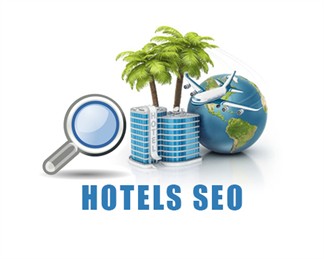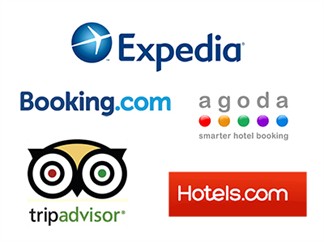How SEO Can Increase Revenue For Hotels
Online marketing is not an option anymore, it is a must have digital marketing best practice. All hotels are now focusing on building solid strategies, teams and tactics to support their global online presence. Since 2011 the travel, tourism and hospitality verticals are highly invested in their digital marketing efforts and are working hard to get the most out of their programs. Finding potential guests online by having them find your hotel is now a top priority for hotel marketers.

The question is not “should you be using the latest and greatest techniques in digital marketing to promote your hotel now”, but “what is the right mix of digital marketing to maximize your return on investment”. Hotels can use a variety of messages, media and methods to increase online revenue including social media marketing, mobile applications, email campaigns, search engine advertising and onsite search engine optimization. In this blog post we will focus on the SEO process for hotel websites.
Many hotels are still using their website just for branding purposes. Some vintage marketers think by having a website online, they achieve an “online presence” and all things implied by that term. Not anymore. The digital world has now evolved and digital marketing should include a solid SEO strategy to maintain your website and brand visibility across the common search engines.
Why SEO for hotels? Does it really matter?
Traditional marketing still has several benefits for hotels but with 43% of travelers planning their trips online (Google), website SEO has become a fundamental component to a global digital marketing strategy for hotels.

Source: Google
How can hotels increase revenue by increasing their SEO efforts? Here are a few tips:
Use researched and relevant keywords
It is important while creating your keywords list to avoid choosing keywords that might be used for another purpose or in another relevant field in order to prevent misunderstandings from either Google or your potential guest.
Here’s a simple example to clarify the point: If your hotel is a five stars hotel you should avoid keywords like “cheap”, “cheap rooms”, “cheap package”, etc… It would not be unusual to find several hotels in your area using these types of keywords in their website SEO efforts. By not researching and thinking through your key word list you will end up trying to compete with other hotels on their terms “pun intended :)” when you don’t have to or should not. If you are a 5 Star hotel you are targeting a different segmentation of travelers and visitors to your website. Competing with more hotels for their keywords not relevant to your property makes no sense. It is highly important to focus only on the most relevant keywords to attract visitors while implementing the SEO strategy.

Thumbs up for local and OTA listings
Google cares about local listing! Google’s last updates to their algorithm made local listings more important than ever. The word “local listing” here refers to locations such as Google Places, Foursquare and Yellow Pages. Every SEO specialist should focus on local listings for hotels as it is now one of the most important factors for search engines. Travelers usually search tools like Google Maps to find destinations and nearby hotels.
It is important as well to focus on some of the more famous booking sites like Booking.com, Hotels.com, Agoda, Expedia and Trip Advisor. These OTA websites are very important for every hotel to list in order to increase the hotel’s online revenue. Booking site listing should be optimized with keywords, images and the proper text.
Understand “locale = culture + geography + language” when it comes to potential guests and website SEO
What locale are your potential guests from? For example, if your hotel serves the greater MENA region (Middle East and North Africa) and/or is located there, what aspects of locale should you look at in your SEO efforts? For example:
Certain promotions and web content addressing cultural holidays such as Ramadan can help you attract Muslim guests (think culture) at the right time of year.
Certain promotions and web content addressing geography and seasonality can help you attract guests from up north from places such as London or Moscow, much of Europe for that matter (think geography) at the right time of year.
Certain promotions and web content addressing language can help you attract guests from markets where other languages are spoken (think language) any time of year as people are 70% more likely to buy when sold to in their native language.
In summary
Search engine optimization is now a fundamental aspect of a hotel’s digital marketing program. Making sure you go about it in a careful and thoughtful manner will help ensure the best ROI for your efforts.
